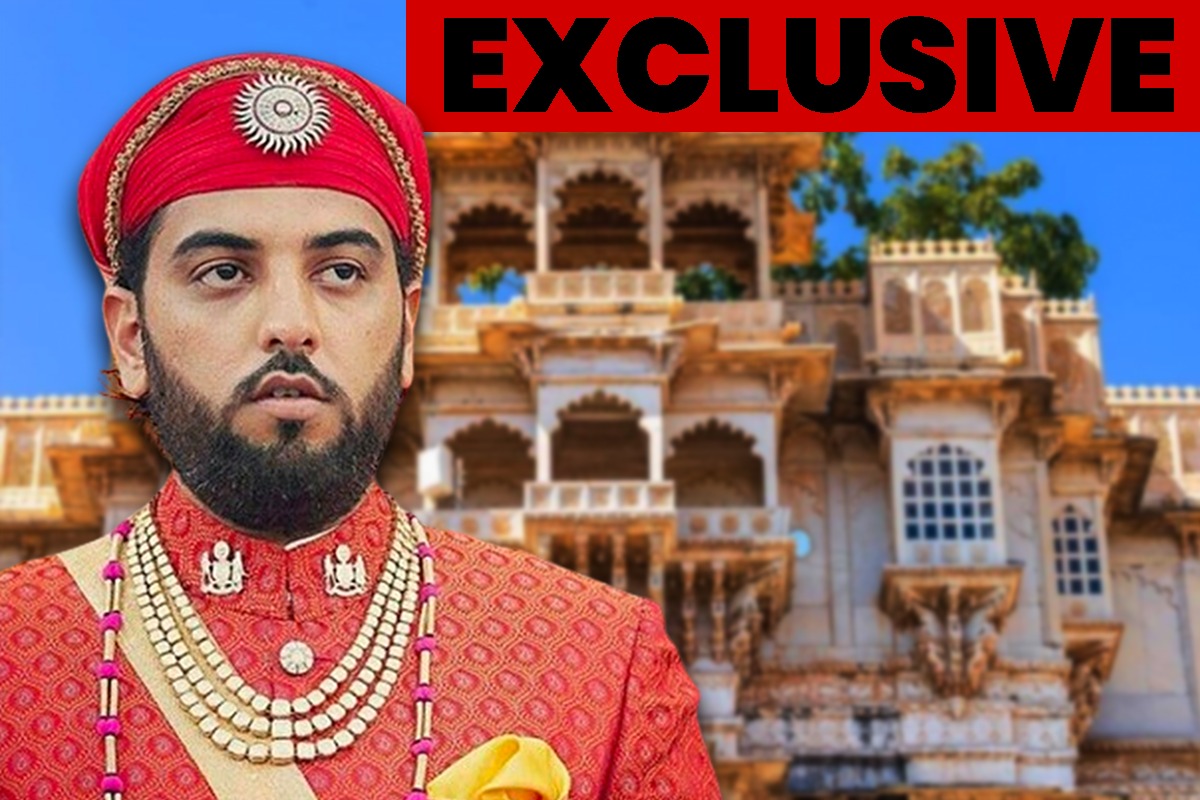NEW DELHI: Udaipur, known as the “City of Lakes,” stands as a living testament to India’s rich heritage. Nestled in the heart of this historic city is Prince Lakshyaraj Singh Mewar, a distinguished custodian of the Mewar dynasty. Beyond the regal facade, Prince Lakshyaraj is a multifaceted personality – an art connoisseur, philanthropist, and a staunch advocate for the repurposing of Udaipur’s palaces into world-class heritage hotels.
During an expansive and exclusive interview with The New Indian, Prince Lakshyaraj delved into his role as the executive director of the luxurious HRH Group of Hotels, his commitment to preserving Udaipur’s cultural heritage, the unique blend of tradition and modernity that defines his worldview, and the recent political landscape in Rajasthan.
Embracing 1,500-Year Legacy

In the hallowed halls of the Mewar dynasty, tradition is not just a mere echo of the past but a living, breathing entity that has endured for 1,500 years. Lakshyaraj, with the humility befitting his royal lineage, reflected on the privilege and responsibility of carrying forward this profound legacy. “Observing both my parents, especially my father, closely over the years has been a valuable learning experience,” he shares. “It’s a matter of personal choice whether to adhere to traditions or not, and in our family, certain traditions, like our pujas, have remained untouched over centuries,” he said.
Also Read: Undoubtedly descendant of Lord Ram: Udaipur prince ahead of Ayodhya temple launch | EXCLUSIVE
He spoke eloquently about the wealth he has accrued, not in material possessions but in the knowledge of these enduring traditions. “There’s no guidebook,” he emphasised, “you learn by observing and adapting to changing times. I am humbled to be part of this legacy, appreciating the wisdom passed down through generations. Your identity is everything, and I take great pride in embracing mine with utmost humility.”
Beyond Royalty: A Passionate Guardian Of Culture
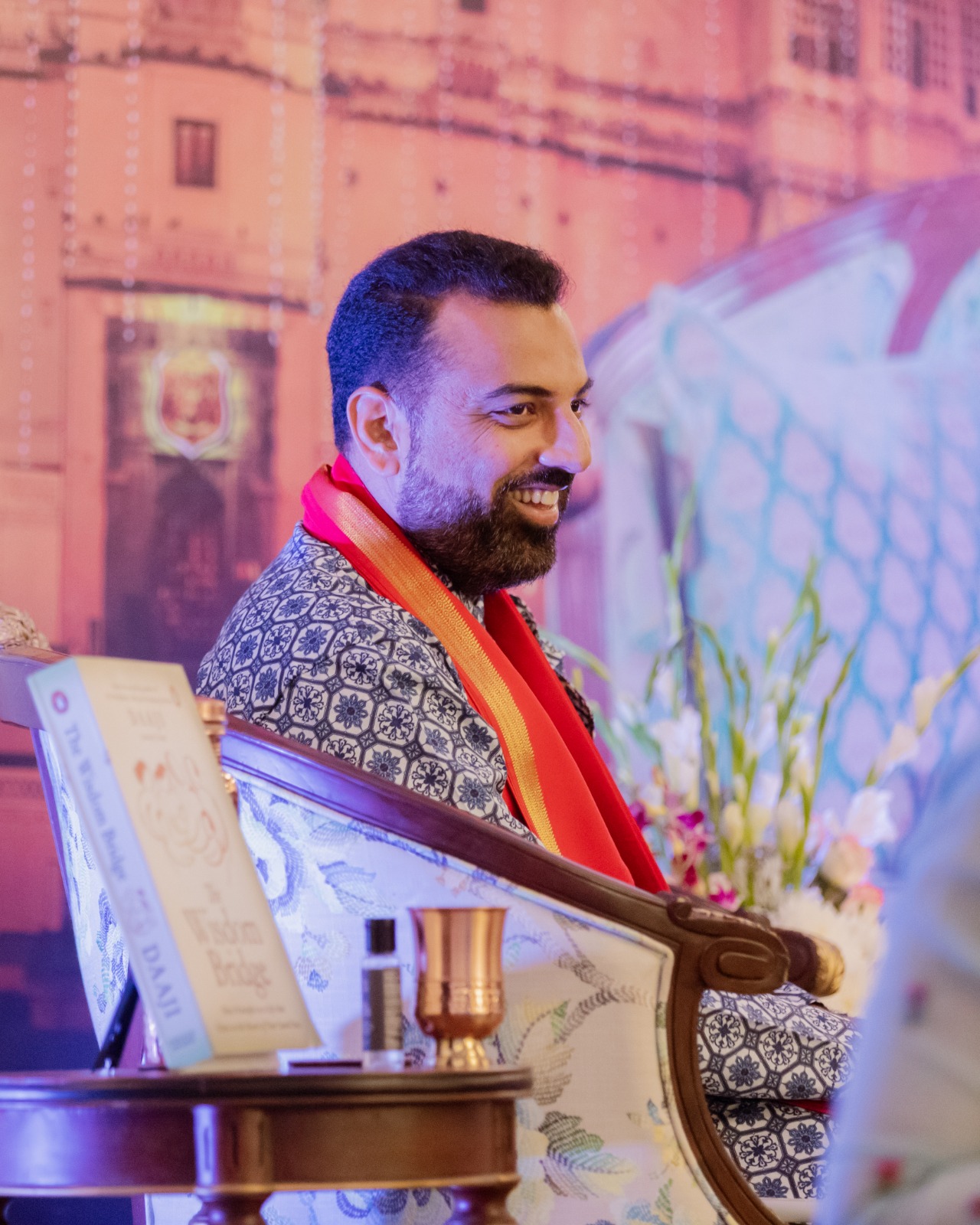
Lakshyaraj transcends the traditional image of royalty, revealing himself as an avid art collector. His multifaceted persona is a testament to his dedication to preserving Udaipur’s cultural heritage. “Our culture is our true wealth,” he asserted, and his actions align with this belief.
Delving into his profound connection to Udaipur’s cultural arts, particularly its rich tradition of miniature art, the royal heir said, “Udaipur has been known for its miniature art. Our miniature paintings and the Mewar School of Painting are the ones that have been widely spoken about. I am also a great admirer of miniature models. So, till date, I collect miniature die-cast models. Somewhere I feel it is in my DNA to be able to appreciate fine things.”
Sharing his fondness for literature and Urdu, the royal scion expressed, “Intangible heritage, particularly language is crucial. Languages like Hindi, born from our land, incorporate words from various languages, including about several from Urdu, such as ‘mujhe se’ and ‘yaqeen’.
“Even common words like “aankh” have Urdu roots. Over time, languages blend, losing some elements, but this process fosters growth. Languages, including our local and other tongues, fascinate me for their ability to bring people together and provide insights into different cultures. It reflects our unique culture and varied food traditions from north to south, east to west. Embracing this diversity is essential for mutual respect and appreciation.”
Balancing Tradition And Modernity
In a world that constantly reinvents itself, Prince Lakshyaraj gracefully navigates the delicate balance between tradition and modernity. “What’s considered modern is subjective and evolves with each era. When things were happening 100 years ago, they were considered modern at that time.” he mused. “We need to grasp the context, adapt to changes, and embrace our ability to grow and navigate challenges.”
Inspiration In Life
Lakshyaraj, since his early years, has devoted himself earnestly and altruistically to public service, advocating for moral causes. Sharing a rare glimpse into his personal inspirations, the prince revealed, “I am a great admirer of the Armed Forces. There is no better discipline, there is no better admiration, there is no better commitment that you see outside an institution of the Armed Forces. So, it’s unfair to single out any one person from my family; rather, it’s the institution as a whole that provides me with tremendous inspiration.”
Royal Commitment To “Living Heritage”
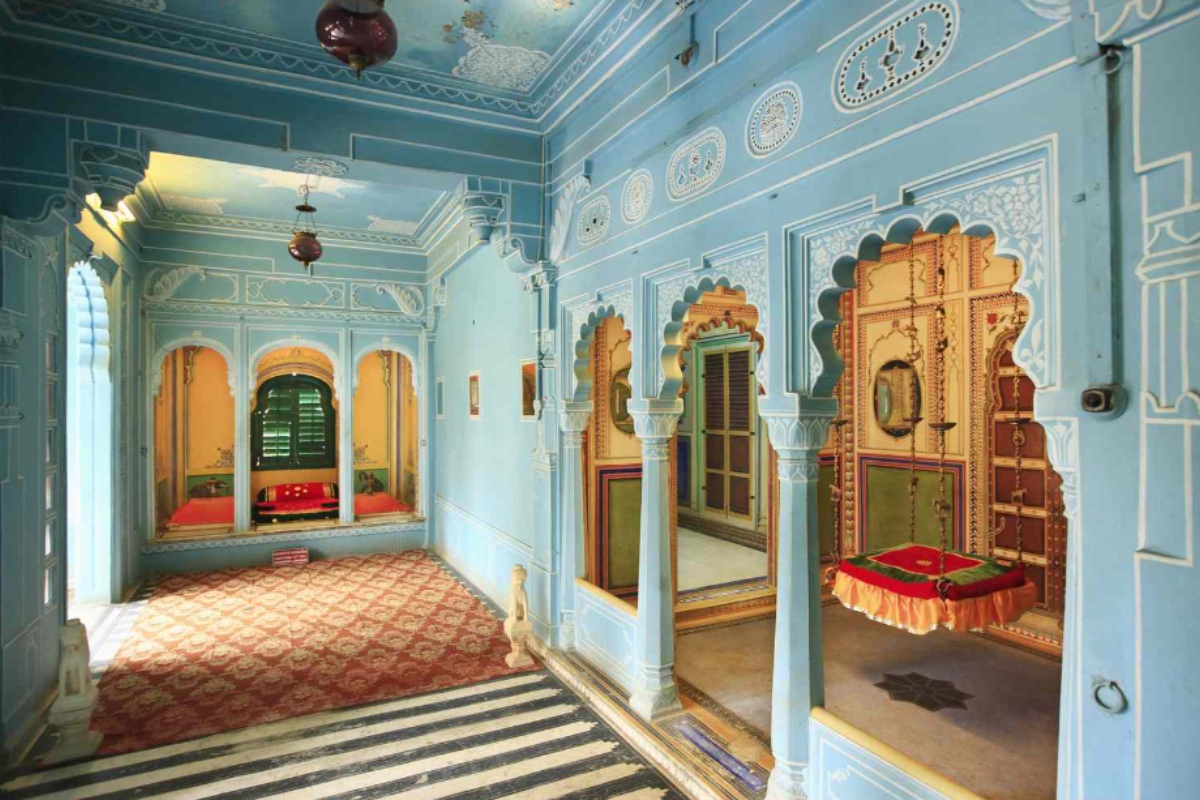
Palaces across Rajasthan, having undergone extensive restoration, blend historical charm with tastefully incorporated subtle modern elements in their design. The City Palace in Udaipur stands atop a hill shaped like a fish, bordered by a waterfront on one side for protection against invaders, while also offering sweeping vistas of the glistening waters of Lake Pichola.
Highlighting his family’s commitment to heritage conservation, the royal scion shared specific initiatives he has taken to safeguard and promote Udaipur’s cultural heritage. “We have various ongoing projects that encompass both tangible and intangible conservation, ranging from preserving buildings and arts to ensuring education and even working on arms and armoury.
“This falls under the umbrella term of “living heritage,” which means that it’s not about dead monuments but ek jeeti jaagti saans lene wali jaga hai (vibrant, living spaces). These efforts persist on a daily basis, with a recent focus on restoring arms and armoury spaces, showcasing our commitment to diverse areas, including art, culture, education, buildings, and the armed forces,” he said.
He further added that people often criticise cultural practices due to their detachment, lack of awareness, and limited education on the subject. Such criticisms, disguised under creative licensing and freedom of speech, may arise from a lack of knowledge. Therefore, it’s important to be cautious, sensitive, and fulfil cultural duties without unnecessary baggage.
Philanthropy And Guinness Records
Lakshyaraj, who is a passionate advocate for community service, proudly discussed his eighth Guinness World Record. “I follow the GGGN formula, which stands for ‘greatest good for the greatest number,'” he revealed. “It’s about being greedy to do the greatest good you can. Despite people criticising the kings and their families for not being efficient enough, our family has a tradition of education, and we’ve been supporting girls’ education through Balika Shambhu Pathshala since 1864. This work is part of our legacy, and we continue to expand our educational initiatives.”
A Prince’s Education
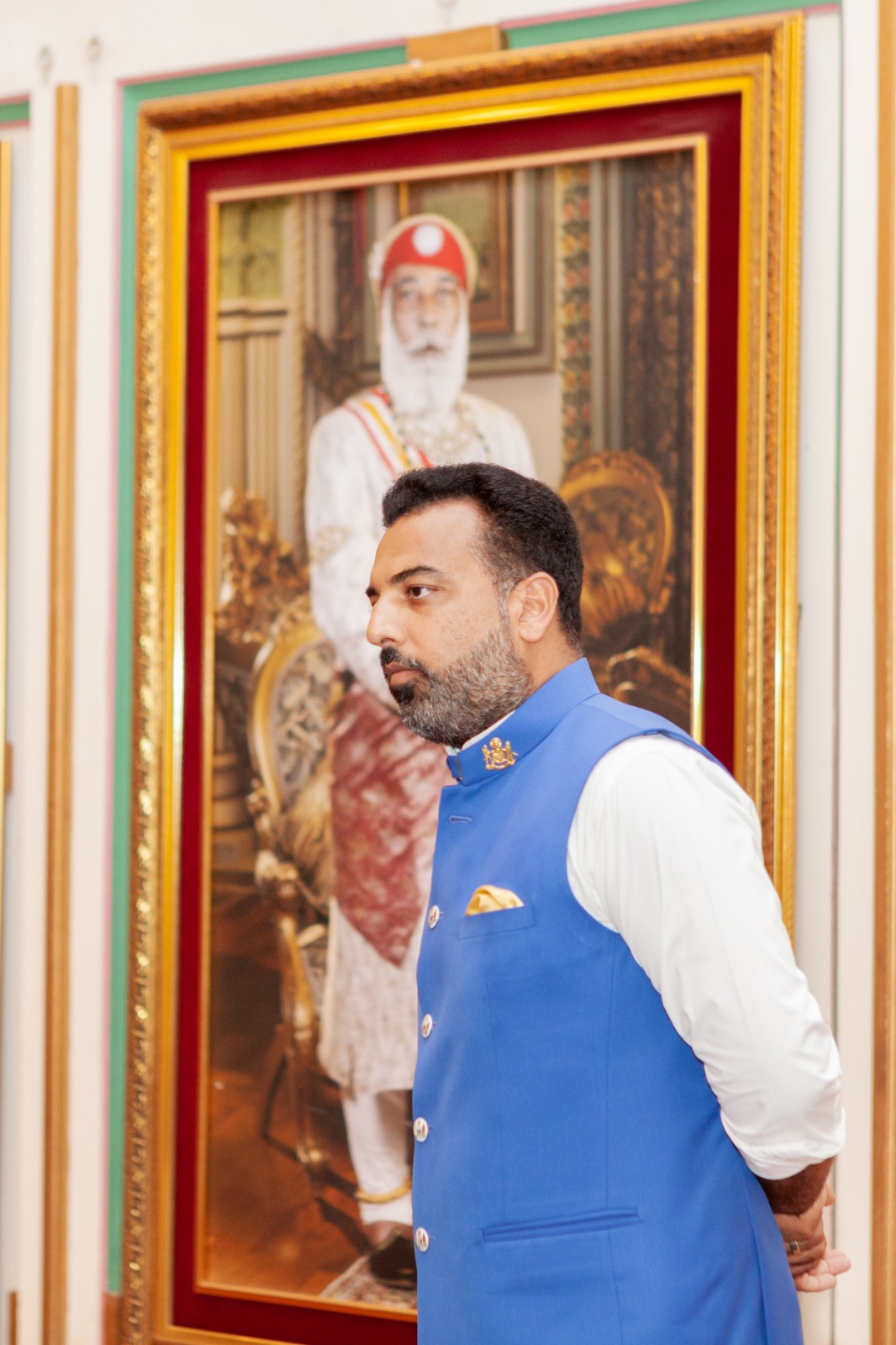
Lakshyaraj’s international exposure shaped his perspective on education and business. After pursuing a Bachelor of Commerce degree in Hospitality Management at Blue Mountains Hotel Schools in Australia, he returned to Udaipur in 2007, prepared to contribute actively to the growth and preservation of the city’s heritage.
“Personally, I see life as floating, and the more you float, the more you understand—a significant part of education. During my time in Australia, where the campus housed 35 nationalities, I learned immensely about diverse responses to situations from people worldwide. Beyond the basics like washing dishes, this experience helped me grow as an individual, transforming me from a shy person to someone more confident and adept at interacting with others,” the royal heir divulged.
“Now, in today’s interconnected world, I believe in sharing experiences and spreading the word. With the ease of travel and exploration, I invite people to come to Udaipur and discover its rich history, culture, military architecture, paintings, and the evolution of civilisations. Explore how ancient structures, originally built for different purposes, are now successfully adapted for modern uses like hospitality,” he added.
A Prince’s Love Story

Beyond the regal responsibilities and public service, Lakshyaraj, who tied the knot in 2014, shared the deets of his first meet with wife Nivritti. “Family played a significant role in the second phase of my life,” he reminisced. “Once you have the green signal from your parents, it boosts your confidence to interact and explore, and this mutual understanding happened from both sides. Today, with their blessings, we have three wonderful children ”
BJP’s Victory In Rajasthan: “Whatever Happens Will Be For Best”
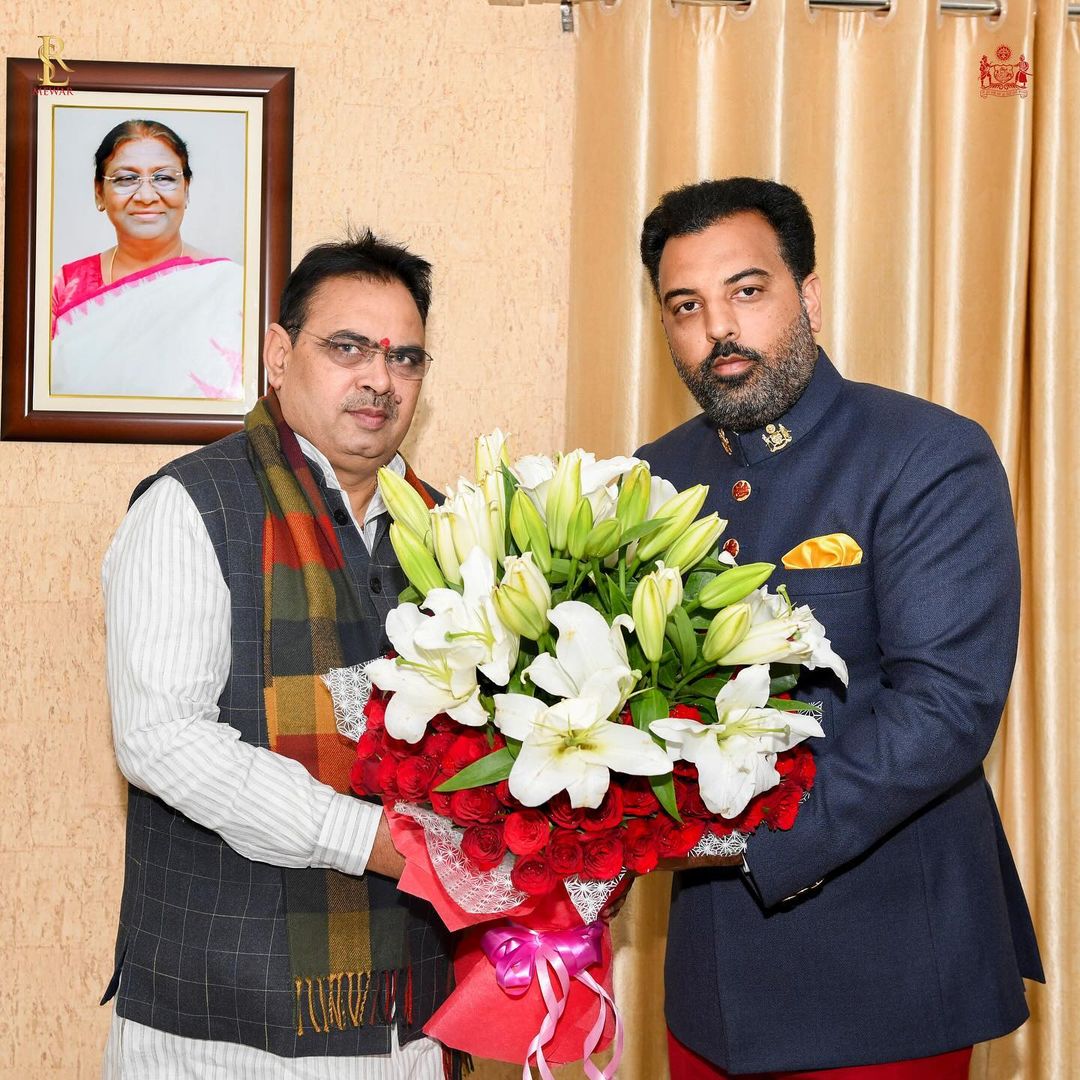
The Bharatiya Janata Party (BJP), led by Prime Minister Narendra Modi, has secured a decisive victory in Rajasthan, capturing 115 out of 199 seats in the recent legislative election. The Congress secured 69 seats. The state maintained a tradition of not re-electing the incumbent party, a practice upheld for nearly three decades.
Underscoring the key transformations that his family foresee in the state’s governance under the BJP, the prince expressed, “The BJP’s approach in Rajasthan is entirely different, with new faces and strategies. Therefore, they deserve some time. They are performing well in at the Centre, so people have chosen them for a reason, and we should trust the democratic process. We are hopeful jo hoga achche ke liye hoga (whatever happens will be for the best).”
“Last 10 years, the BJP has been in power nationally, and during this time, there has been a generally positive law and order situation in the country. Despite a few incidents, they were swiftly addressed. The hope is that this effective governance will extend to Rajasthan, and early signs suggest positive changes in law and order in places like Udaipur.
“Specific measures have been taken to address issues like road encroachments and traffic problems in the city, resulting in positive changes. These are early examples of the commitments and promises made, and it’s important to give the new leadership some time to demonstrate their plans for the state,” he affirmed.
“Opportunities For Capable People Is Crucial”
In December, the BJP revealed that Bhajan Lal Sharma, a debutant legislator, would assume the role of Chief Minister in Rajasthan. Representing the Sanganer assembly constituency, Sharma holds the distinction of serving as the party’s state general secretary four times.
Discussing the BJP’s choice of Chief Ministerial candidate for Rajasthan, the royal heir remarked, “People were truly surprised, and rightfully so. The decision to entrust leadership to someone deemed competent is commendable. It echoes the rise of our Prime Minister, who faced scepticism in the past but has proven himself. Providing opportunities for capable people is crucial for our country’s progress. This move challenges preconceptions and instils confidence in the ability of leaders to deliver. It’s essential that we, as citizens, support and encourage positive change.”
Also Read: Could mounting Ethiopia-Somalia tensions trigger unrest in Horn of Africa?
Also Read: World leaders brace for potential Trump resurgence



